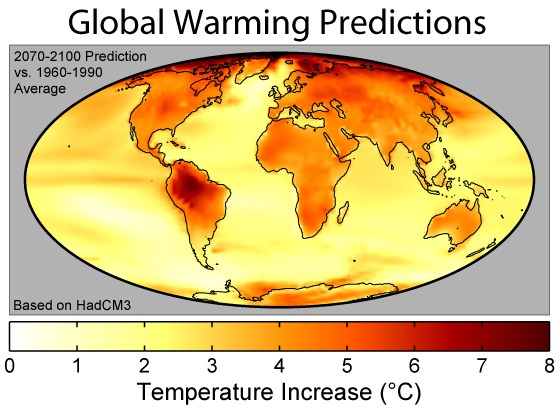“Earth’s growing fever has obvious repercussions for human health.” [Imagine: The Conversation]
.
A lot of the effects of climate change seem rather abstract, from “harming health, through air pollution, disease, extreme weather events, forced displacement, pressures on mental health, and increased hunger and poor nutrition”, according to the UN.
Looking at exactly how global warming will harm human health and well-being is becoming clearer – as more unfortunate if not tragic events take place which can be seen as directly caused by changes in our climate.
One such dramatic example from today’s news is how passengers recall the horror onboard of the Singapore Airlines flight – with the Mail reporting that severe turbulence is set to get even worse thanks to climate change:
Now, scientists say climate change is making turbulence worse for planes – resulting in more sudden and violent movement, and increasing the risk of fatalities. Speaking to MailOnline, Isabel Smith, a turbulence researcher at the University of Reading’s meteorology department, warned that global warming makes jet streams – the narrow currents of fast-moving air that planes fly along to get a speed boost – more ‘chaotic’.
‘The amount of turbulence is closely linked with the speed and velocity of the jet streams, the fast flowing bands of wind that propagate around the world,’ she told MailOnline. ‘As the jet speed increases, the instability of the jet increases, and air flow becomes more chaotic, leading to more turbulence.’
And over the last week there have been several reports on how the changing climate is having a direct effect on our health – from Europeans more at risk from tropical illnesses due to climate change and African health experts warning of climate change and rising vector-borne diseases – to climate change threatening brain health.
The weekly Imagine series from The Conversation looks at how a hotter world is likely to be a sicker world:
Earth’s growing fever has obvious repercussions for human health, like heatwaves that are hotter than our physiology can tolerate. Humanity’s departure from the stable climate it inherited will yield surprises, too, though. Some of those may be existing diseases appearing in new places or spreading with greater ferocity. And some, experts fear, may be new diseases entirely.
“Close contact between humans and wild animals is increasing as forests are destroyed to make way for agriculture and trade in exotic animals continues,” says Arindam Basu, an associate professor of epidemiology and environmental health at the University of Canterbury. “At the same time, the thawing of permafrost is releasing microbes hidden beneath the ice.”
…
